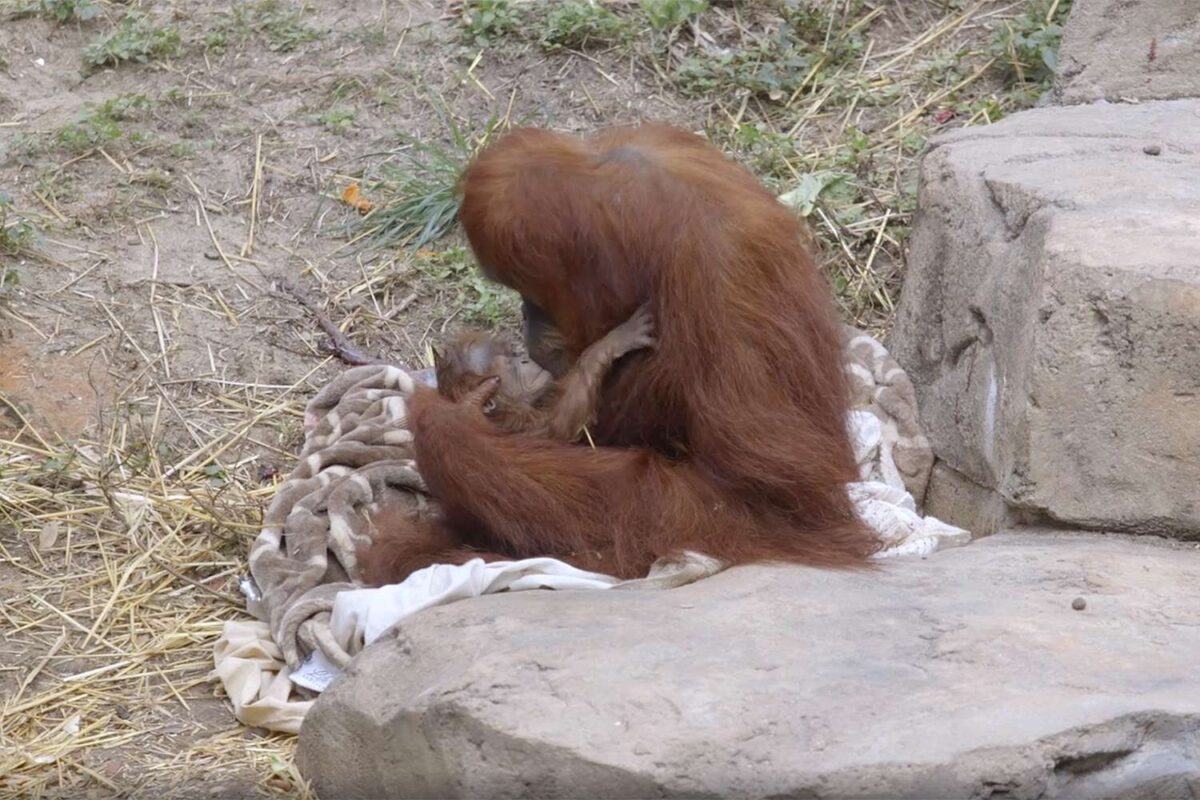Workers at New Orleans’ Audubon Zoo received quite a surprise yesterday when they discovered a 12-year-old orangutan had given birth to her first baby. The Sumatran orangutan–which are a critically endangered species–named Reese delivered her first baby several weeks earlier than workers had anticipated. In a press release, Liz Wilson, who serves as the zoo’s Curator of Primates had this to say:
“We received the best kind of surprise this morning. It just goes to show that, despite all of the uncertainty in the world currently, life is carrying on as normal for our orangutans. It’s really uplifting to see.”
The birth was the result of a successful breeding operation between Reese and the zoo’s male orangutan, Jambi. Mother and baby are doing well and are recovering and bonding in private under the watchful eyes of their caretakers and the zoo’s veterinarian. The first 48 hours after birth are the most critical for young orangutan babies, since this is when they learn to properly latch and nurse.

Even though this is Reese’s first baby, the zoo staff worked hard to prepare her as best as they could for motherhood. She watched both her mother and the orangutan matriarch Feliz give birth and care for their offspring, as well as attended enrichment classes. Senior veterinarian Bob MacLean said:
“Thus far, Reese is showing very positive signs of her maternal instincts kicking in. She is holding the infant close and tending to it well. We are continuing to monitor for signs of nursing and lactation.”
The zoo hasn’t had a chance to determine whether the newest little primate is male or female, but regardless of it’s sex, the baby will aide in keeping the orangutan population genetically diverse. Reese’s mate, Jambi, was brought to the Audubon Zoo from Germany and is considered to be one of the most genetically diverse male orangutans in North America.
Because there are fewer than 14,000 Sumatran orangutan’s living in the wile, this genetic diversity is especially important to preserving the species. Their endangered status is mostly due to irresponsible palm oil harvesting which has devastated the rainforests in Sumatra. Wilson says it is imperative to the preservation of the species that responsible harvesting is encouraged through the purchase of palm oil products made from sustainably-grown resources:
“To help orangutans in the wild, we recommend purchasing products with sustainably grown palm oil. Around the world, those using sustainable practices in logging and agriculture are demonstrating that it is possible to conserve wildlife habitat while supporting the local economy.”
COMMENTS POLICY: We have no tolerance for messages of violence, racism, vulgarity, obscenity or other such discourteous behavior. Thank you for contributing to a respectful and useful online dialogue.